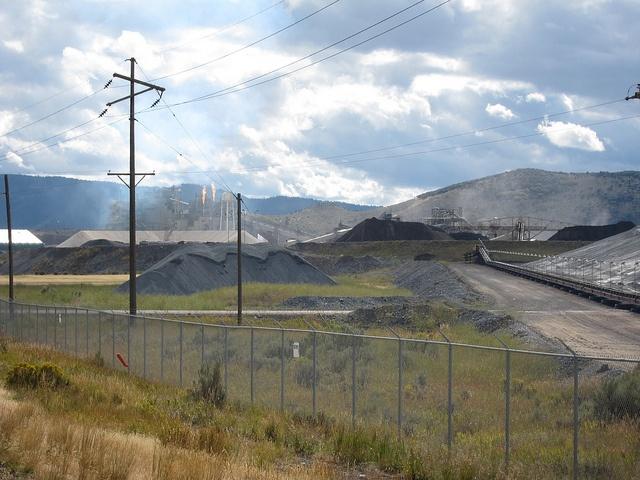
Minerals are everywhere in the news, it seems. Everyone's talking about coal, iron or copper, as prices of those resources falls globally.
But one you don't hear much about is phosphorus, though it might in fact be the most important mineral for life on this planet as we know it.
That's because phosphorus is one of the most important elements in soil and is critical for plant growth. Plants, of course, are the source of all the calories we eat every day (many indirectly via plant-eating animals like cows). The boom in human populations that the world has experienced over the past century was in part due to a boom in agricultural productivity, brought forth by the ability to fertilize acres upon acres of fields with mined phosphorus.
For decades, we've been depleting soil, but, so far, its been mitigated by fertilizers. That might be changing, according to the journal Science.
"Profound changes are on the horizon for these interconnected functions — particularly sparked by changes to climate and food production — that will likely reverberate through society this century," wrote the authors of a new report, Soil and Human Security in the 21st Century. "Ultimately, the way in which we directly and indirectly manage our planet’s soil will be interwoven within our future success as a species."
In fact, according to the study, phosphorus prices are rising rapidly because we're using it up too quickly. As more and more soils are depleted around the world, the demand for fertilizers is growing. It is a vicious cycle that will only get worse with time.
This is a big problem. We can't just replace phosphorus – it is essential not only for plant growth, but also for our health. We need to figure out a way to preserve phosphorus-rich soils and reduce our dependence on limited, mined phosphorus before is it too late.
A natural solution
Now, the good news. Unlike many other global environmental problems, here, there is a clear solution: Change how we farm.
Enter ecological farming. Unlike traditional, single-species mass agriculture, ecological farming -- an extreme organic farming method made famous by Joel Salatin, owner of the Polyface Farm featured in Michael Pollan's bestselling 2007 book "The Omnivore's Dilemma" and the 2008 film "Food Inc." -- is incredibly productive, uses no fertilizers and actually replenishes soil up to one inch per year – nearly 20 times faster than the natural environmental rate.
In an ecological farm, phosphorus is replenished through the use of plants that add minerals to the soil, manure from animals and ecosanitation. If implemented widely, it could solve the phosphorus crisis
Time for the world to act
As the Science study shows, we're nearing a critical point. Now is the time to begin to rethink agriculture and transform into a more ecological system. Our planet will thank us, and we'll be able to feed our billions while preserving our soil.
It won't be easy. The current agricultural system favors large-scale farms that utilize mass-fertilizers and farm only a single crop – they get government subsidies and preferential access to markets. We need to shift those benefits to ecological and organic farms that preserve soil quality.
If not, then Grist's Nathanael Johnson might be right with this headline. The next big war might really be over phosphorus, because we destroyed all of our soil.
Image credit: Flickr/Edward Stojakovic

Nithin Coca is a freelance journalist who focuses on environmental, social, and economic issues around the world, with specific expertise in Southeast Asia.














